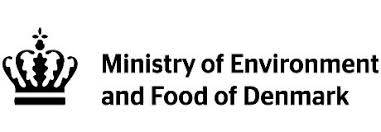Chemycal has been acquired by 3E
Learn MoreChemycal has been acquired by 3E
Learn MoreDiscover how Chemycal PRO helps you boosting your regulatory monitoring:

The Danish National Audit Office (Rigsrevisionen) has published a report criticizing the Ministry of Environment's handling of PFAS (Per- and Polyfluoroalkyl Substances) from 2007 to 2021. The report highlights three main areas of concern:
Lack of documented risk assessments: The Ministry did not provide evidence that inspections of PFAS-containing products were based on risk assessments. The Environmental Protection Agency is working on clarifying the basis for risk-based control and enforcement procedures.
Insufficient monitoring of landfills: The Ministry did not impose monitoring requirements for PFAS emissions from landfills. As a response, the Environmental Protection Agency plans to conduct a supervision campaign focused on PFAS and enhance monitoring of landfills in 2023.
Inadequate PFAS monitoring in water: The Ministry failed to sufficiently monitor PFAS levels in drinking water, surface water, and wastewater. The Environmental Protection Agency has taken steps to address this by conducting additional investigations and will further address the remaining concerns.
The Environmental Protection Agency acknowledges the criticism and will thoroughly review the areas highlighted by the National Audit Office. Environment Minister Magnus Heunicke has initiated a comprehensive review of relevant authorities' handling of PFAS within the ministry's jurisdiction. The Ministry has implemented various measures in recent years to address PFAS-related concerns.
PFAS contamination is a significant issue globally, and Denmark has tightened permissible limits for PFAS in drinking water, groundwater, bathing water, soil, and sludge. The Ministry of Environment has been actively involved in developing regulations for PFAS in the European Union and has implemented monitoring programs through the National Environmental Monitoring Program (NOVANA) to assess PFAS levels in water and nature.
Overall, the report emphasizes the need for improved efforts in controlling PFAS use, monitoring emissions, and safeguarding water sources in Denmark.
2013 © MyChemicalMonitoring. ALL Rights Reserved. About Us | Terms and Conditions